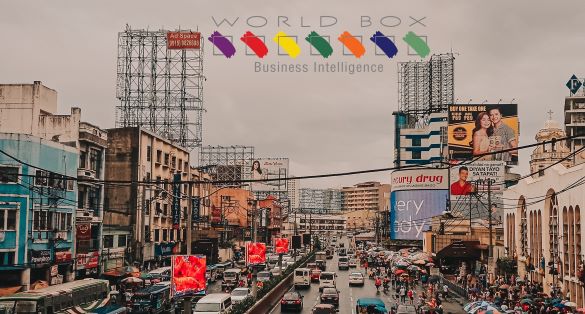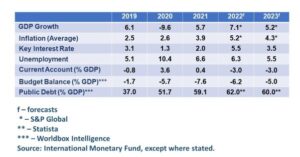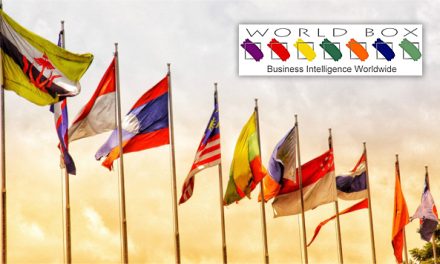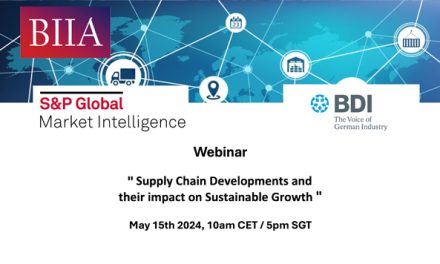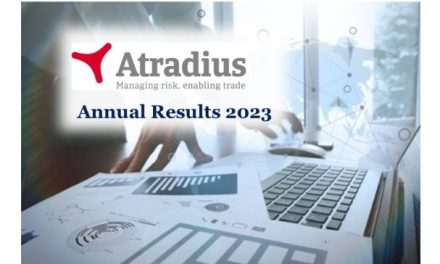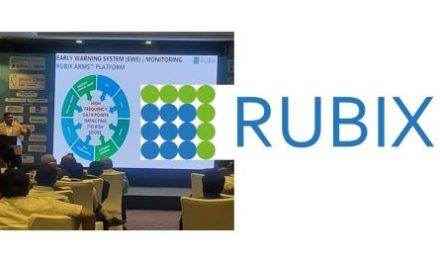Worldbox Intelligence Risk Rating January 2023
THE PHILIPPINES
Overall Score 22 – Stable
Political risk: Stable 8/10
Economic risk: Stable 7/10
Commercial risk: Stable 7/10
The risk assessment of a country is made up of 3 components, being Political, Economic and Commercial. Each component is scored out of 10 with 1 being the highest risk and 10 the lowest.
Political Risk – Stable 8/10
The new president Ferdinand “Bongbong” Marcos Junior, elected in a landslide at the May presidential election, has pledged to continue many of the policies pursued by the outgoing president Rodrigo Duterte. These include the controversial and sometimes brutal war on drugs, and the pro-China policy.
Marcos released few details of economic policies during the election campaign. He is the son of the former dictator of the same name. Marcos is likely to follow Duterte in placing technocrats in key economic posts.
Meanwhile, Duterte´s daughter, Sara Duterte-Carpio, won the vice-presidency, having run on joint ticket with Marcos. Her election should protect Duterte against potential legal action by the International Criminal Court, which is investigating thousands of killings since 2016 during his war on drugs. Duterte’s government has denied wrongdoing and has said it will not cooperate with the ICC.
The election result is unlikely to have any significant impact on economic or investment policy, or on the country’s overall political stability. The Philippines is a democracy in which powerful families, rather than ideology, tend to dominate the political environment. Despite reports of vote-buying and some election-related violence, recent polls have been reported as fair and credible. Meanwhile, long-term violent insurgencies continue in parts of the country, although their threat to the state has diminished significantly in recent years.
Economic Risk – Stable 7/10
One of the most dynamic economies in the region, the Philippines was hit hard by the COVID-19 pandemic, but growth is now recovering strongly. Over the 10 years to 2019, economic growth averaged 6.3 per cent per annum, one of the highest rates in Asia. According to the IMF, “sustained reforms and prudent macroeconomic policies supported strong economic growth and helped contain external and macro-financial vulnerabilities”.
The economy grew by 5.7% in 2021 after a record 9.6% contraction in 2020 driven by prolonged COVID-19 lockdowns. The economy has strengthened further in 2022 but is expected to slow in 2023 reflecting weaker global growth – see January2023 Risk Bulletin below.
The country’s new economic planning secretary Arsenio Balisacan has said the government aims to achieve economic growth of at least 6% throughout the term of President Marcos. He added that would involve boosting investment in agriculture and manufacturing and building infrastructure to expand the economy by between 6%-8% annually to 2028. Farm and industry output currently account for less than 40% of gross domestic product, while services contributes the majority.
New taxes will be needed over the next six years to fund the investment. The Department of Finance (DoF) has already unveiled a fiscal consolidation plan which aims to raise an average of P284 billion (US$5.16 billion) in fresh revenues every year for the next 10 years to repay the P3.2-trillion (US$58 billion) of additional debt incurred during the pandemic. The plan involves new tax measures such as value-added tax (VAT) on digital service providers; excise tax on single-use plastics, motorcycles and luxury goods; and tax on gaming and cryptocurrency.
The government also believes there is scope to increase the taxes on mining revenues, and to introduce pollution taxes and more “sin” taxes on the likes of cigarettes and alcohol.
That would be in line with the former administration’s policies. Under Duterte, the government introduced a comprehensive tax reform programme that involved lowering personal income tax, a tax amnesty for delinquent taxpayers. The new administration is also likely to press ahead with reforms in real property valuation and passive income taxation that the previous administration failed to get through Congress.
However, given the Philippines is still recovering from the impact of the pandemic on the economy, the government will be wary of tightening the fiscal screw too quickly. Indeed, incoming Finance Secretary Benjamin E. Diokno has said that he wants to avoid new taxes for now, and would rather focus on improving tax administration via digital processes.
Commercial Risk – Stable 7/10
The business environment is improving significantly, according to the World Bank’s Ease of Doing Business (EODB) index. Its 2020 report ranked the Philippines in 95th place out of 190 economies, with a score of 62.8. But the country jumped 29 notches from 124th and a score of 57.68 in 2019. The World Bank uses 10 indicators to measure a country’s EODB performance: Starting a Business, Dealing with Construction Permits, Getting Electricity, Registering Property, Getting Credit, Protecting Minority Investors, Paying Taxes, Trading Across Borders, Enforcing Contracts, and Resolving Insolvency.
The Philippines made significant progress in the areas of Protecting Minority Investors, Getting Credit, and Dealing with Construction Permits during the year. In other indicators, the Philippines ranked 32nd in Getting Electricity, 120th in Registering Property, 95th in Paying Taxes, 113th in Trading Across Borders, 152nd in Enforcing Contracts, and 65th in Resolving Insolvency.
The Philippines ranks joint 115th out of 180 countries in Transparency International’s 2021 Corruption Perceptions Index – significantly lower than the likes of Thailand, Vietnam and Indonesia. According to the Philippines Corruption Report by GAN, high levels of corruption severely restrict the efficiency of businesses operating in the Philippines.
GAN cites extensive bribery within the public administration and vague and complex laws that make foreign companies vulnerable to extortion and manipulation by public officials. Favouritism and undue influence are widespread in the courts, leading to time-consuming and unfair dispute resolution, and to an uncertain business environment. Corruption plagues the customs administration, and fraud routinely occurs for companies when filing import and export documentation. Moreover, GAN says that the legislative framework for fighting corruption is scattered and is not effectively enforced by the weak and non-cooperative law-enforcement agencies.
The country ranks in 80th place in terms of economic freedom, as ranked by the Heritage Foundation’s 2022 Index, down from 73rd in 2021. Its overall score decreased by 3.0 points over the year, primarily because of a decline in fiscal health and monetary freedom. The Philippines is ranked 15th among 39 countries in the Asia–Pacific region, and its overall score is above the regional and world averages.
January Bulletin
Political Risk – Stable 8/10
The government faces no significant threats to its rule. The election of Marcos Junior and Duterte-Carpio avoided a situation, which has happened in the past, when candidates from rival parties have been elected to the posts of president and vice president and have been unable to work together. No major changes to economic policy are expected.
One of the main challenges facing the administration is dealing with China´s increasingly assertive stance in the South China Sea. Under Duterte, the Philippines moved closer to China, and threatened to break Manila’s long-standing treaty alliance with Washington, which criticised the war on drugs. Meanwhile, China opened up markets to Philippine agricultural products and pledged billions of dollars in credit and investments, mostly for infrastructure.
In November 2022, in a sign that Manila was tilting back to the US, both countries agreed to expedite the implementation of a stalled 2014 defense pact that would see US troops gain access to a number of Philippine military facilities. Signed in 2014 under the administration of then-US President Barack Obama, the agreement allows Washington to rotate troops into the Philippines for extended stays, build facilities and pre-position both assets and supplies at the five Philippine military facilities currently designated under the deal.
The number of facilities could double over the next few years. Manila has announced that Washington has proposed additional locations to help build a “more credible mutual defense posture.” The new friendliness between Manila and Washington comes amid heightened tensions between the Philippines and China in the South China Sea.
Economic Risk – Stable 7/10
The economy is thought to have accelerated significantly in 2022. In November, S&P Global Ratings raised its GDP growth forecast to 7.1% from the original target of 6.3%. In the first nine months of the year, the Philippines’ economy expanded by 7.7%. However, the ratings agency expects growth to slow significantly in 2023 amid major external headwinds that will dampen export demand.
The lagged effects of 2022’s monetary policy tightening will also weigh on domestic consumption and investment, while pent-up demand from the pandemic would not be as much of a growth driver as it was in 2022. That said, another ratings agency believes the Philippines will post the fastest GDP growth in the region with 6.4% in 2023, followed by Vietnam with 6.1%.
The robust expansion seen in 2022 is particularly remarkable given relatively high inflation that has weighed on real incomes and higher borrowing costs. Annual inflation in October 2022 reached 7.7%, the quickest pace in almost 14 years, driven mainly by higher food costs. The central bank, Bangko Sentral ng Pilipinas (BSP), has responded by raising interest rates aggressively from 2% to 5% over the course of 2022. Further hikes are likely. S&P sees inflation accelerating to an average 5.5% in 2022 from 2021’s 3.9% before easing to 4.3% in 2023 and 2.7% in 2024.
Officials said in November 2022 that the government’s debt-to-GDP ratio should decline to about 50% by 2028 due to strong economic growth. The ratio climbed to 62% in 2022 from below 40% before the pandemic hit revenues and spending surged.
A nearly two-year ban on foreign travellers was lifted in early February 2022 as the Omicron surge eased. The move should provide a welcome boost to tourism and the economy. Tourism contributed 12.7% of GDP and generated 5.7 million jobs in the pre-pandemic year of 2019. In November 2022, tourism officials said tourist numbers would likely hit 2 million in 2022 and 4 million in 2023.
Commercial Risk – Stable 7/10
The profitability of the Philippines’ large banks will be sustained in the second half of 2022 on the back of better net interest margins due to recent policy rate hikes, following a robust improvement in the first half of the year, driven by a strong recovery in the economy and loan growth, Fitch Ratings reported in August 2022.
Fitch added that while high inflation and the central bank’s monetary policy response are likely to dampen loan demand for the rest of the year, banks should see improved margins as loans are repriced, which will sustain healthy revenue growth for the full year. Fitch believes the large banks are in a good position to weather incremental asset quality weakness resulting from higher interest rates over the next 12 months, supported by their loan loss buffers. The ratings agency has maintained its improving outlook on the banking sector.
Latest economic data
About Worldbox Business Intelligence
An independent service, Worldbox Business Intelligence provides online company credit reports, company profiles, company ownership and management reports, legal status and history details, as well as financial and other business information on more than 50 million companies worldwide, covering all emerging and major markets.
Worldbox was founded in the 1980s, with the vision to become a global business provider. Its ability to deliver data in multiple languages in a standard format has strengthened its brand.
Copyright (C) 2022 Worldbox Business Intelligence. All rights reserved.
Worldbox Business Intelligence
Breitackerstrasse 1
Zollikon
Zurich 8702
Switzerland
